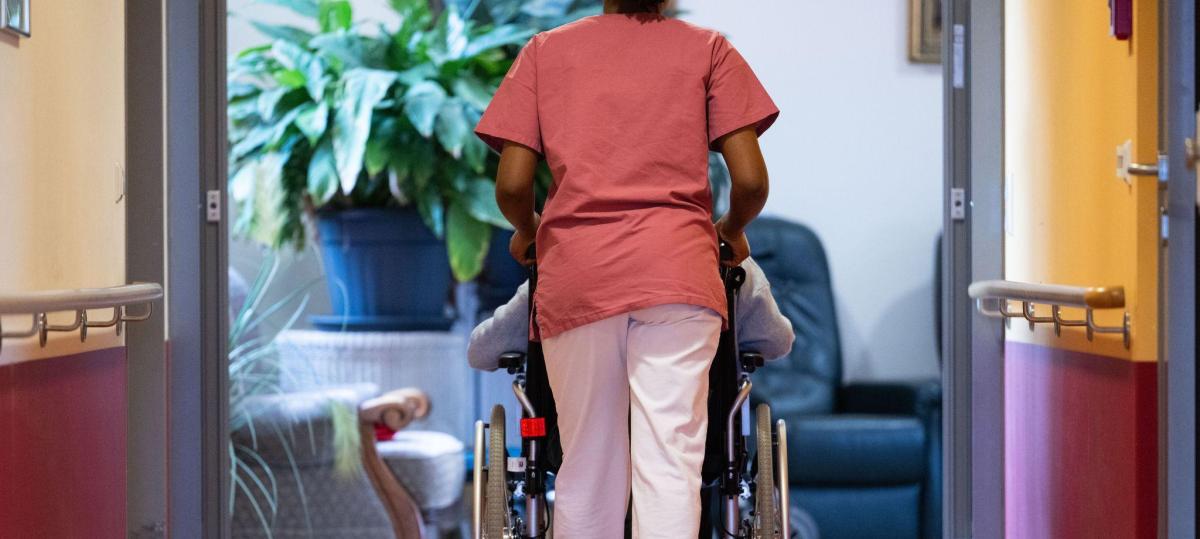The crisis in nursing is heading to

It is an escalation with an announcement: the situation in care continues – and that on many levels. While the number of people in need of care in Germany has been increasing for years, the search for specialists for their care is becoming increasingly difficult. “Already today it would Nursing industry without foreign nurses Collaboration, because almost every fourth caregiver in the old people’s home has a different nationality, ”says Vanessa Ahuja, director of the Federal Employment Agency, on the occasion of the day of nursing on May 12th.
A DAK study recently showed that a personnel tilting point threatened in Bavaria in 2029. At this point, according to calculations, significantly more nurses could retire than to get into the job than young talent. The number of employees in this area has grown by 22 percent in recent years – to a total of 1.72 million. However, according to the employment agency, growth has been worn exclusively by foreign nurses for three years in a row. In the meantime, their share of staff in nursing professions is 18 percent. In Bavaria, the proportion of foreign employees in geriatric care is even over 41 percent, in health and nursing at 21 percent.
More and more nurses from non -European countries
From the EU and the Switzerland Now fewer strengths come to Germany. Since 2015, the number of employees from Albania, Bosnia-Herzegovina, Kosovo, Montenegro, Serbia and Northern Macedonia has almost steamed for this. Nurses also come to Germany from India and the Philippines. But even by moving from abroad, not all vacancies can be filled. In 2024, only 1,136 unemployed nurses came to 3,347 vacancies in Bavaria.
At the same time do not get Only the long -term care fundsbut also more and more homes in financial imbalance. Since the beginning of last year after a survey by the employers’ association care at 1,264 nursing facilities, bankruptcies or closures have been known. Reasons include increasing operating costs, but also the lack of payment morality of many health insurers. The financial situation in statutory long -term care insurance has been deficient for years.
Federal government is planning « large care reform »
In view of the multitude of problems, ex-health minister Karl Lauterbach announced a nursing reform. However, improvements before breaking the traffic light coalition were no longer on the way. Now the new government has announced a « large nursing reform », a federal-state working group is to develop proposals this year. This is also why Verena Bentele, President of the largest German Social Association, the VdK, warns for rapid action. Schwarz-Rot has promised improvements in his coalition agreement, for example the merger of the nursing time law and the family care time law-both help if employees can be exempted from work for the care of relatives. According to Bentele, this is a step in the right direction, but there is still a lot to do. « The family care allowance is currently only being checked, but we can no longer afford delays, » says the VDK boss. « If you make promises, you have to redeem it – for everyone who does nursing work every day. »
Caritas also puts pressure on. « We cannot wait for the commissions announced in the coalition agreement with so urgently needed, » says President Eva Welskop-Deffaa. Above all, it urges a uniform training structure. This also makes it easier to start foreign forces. « The introduction of a nationwide uniform nursing assistant has been in the drawer since last year, » said the Caritas Association. But the bundling of various financial relief benefits for caring relatives is also important.
The VDK also gives the view on this group. On the day of the nursing staff, not only nurses in institutions would earn more recognition. « We have to focus more on the millions of caring relatives, » emphasizes Bentele. Around 86 percent of those in need of care in Germany are cared for at home. « The relatives do the lion’s share of care – unpaid and often beyond their load limit, » she says. According to the Bavarian State Office for Statistics, more than 631,273 people in the Free State are currently receiving benefits from long -term care insurance, which means that they are considered to be in need of care. 110,844 of which are fully looked after in a nursing home.








